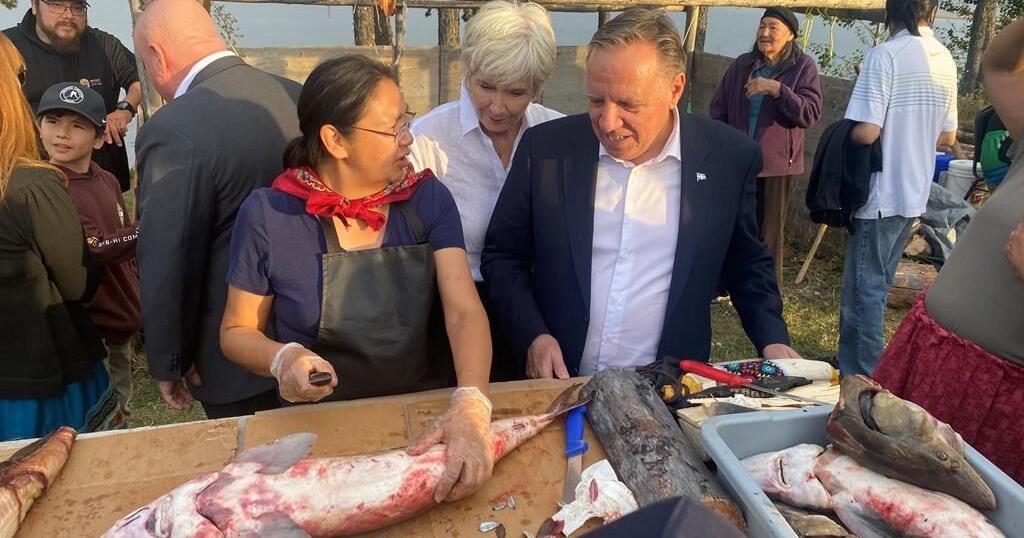MONTREAL – Davis Alexander is relishing the opportunity to face — and defeat — the Hamilton Tiger-Cats for a second-straight week.
The Montreal Alouettes quarterback also knows Hamilton will try to catch him by surprise.
Alexander threw one touchdown, one interception and 262 passing yards in his first CFL start to help the Alouettes (7-1) dispatch the Tiger-Cats (2-6) 33-16 last week at Tim Hortons Field.
With starter Cody Fajardo still on the injured list, Alexander will get the nod again Saturday as the Alouettes host their East Division rivals at Percival Molson Stadium.
“Obviously, we’ll review the tape a little more than we would normally,” Alexander told reporters this week. “But they could come out with something totally different, so we have to be able to adjust.”
The 25-year-old Alexander credited his receiving corps for making big plays throughout the last week’s win to see out the victory.
“We always thought we could move the ball, but they made some good coverages throughout the game,” Alexander said. “Obviously we had the big drive, and (Charleston) Rambo made a big catch, Reggie (White Jr.) made a big catch, Tyson (Philpot) made a big catch — we just got into a rhythm.”
Meanwhile, the Tiger-Cats are looking to get back to winning ways and dig themselves out of an early season hole at the bottom of the East.
Hamilton starter Bo Levi Mitchell struggled last week with two interceptions while completing only 29-of-42 passing attempts. Mitchell credited Montreal’s strong secondary for their ability to limit big plays downfield.
“You saw last week they’re just trying not to give up anything deep,” Mitchell told reporters in Hamilton. “You just have to be smart and make sure you take care of the football.”
Ticats head coach Scott Milanovich echoed his quarterback’s sentiments, saying his team will have to manage their offence with much more care if they hope to put up points against the CFL’s second-best defence.
“It’s a game where you’ve got to play mistake-free football,” Milanovich said. “There’s a time where we have to be aggressive, but you have to make good decisions and not put the ball in harm’s way.”
Alexander entered in relief and led Montreal to a 20-16 comeback win against the Saskatchewan Roughriders in Week 8, and has been riding that momentum since.
He was briefly knocked out of the win over the Ticats after taking a big hit in the fourth quarter.
Should that happen again, Alouettes head coach Jason Maas trusts that acting backup James Morgan can do the job if his number is called.
“Any quarterback in our building, the expectation will be that they’ll be able to function in our offence, however long they’ve been here,” Maas said. “He’ll be ready to play.”
Alexander is the Alouettes’ third different starting quarterback this season, but Maas and his staff have been able to keep things rolling as they sit at the top of the East Division and look for a fourth consecutive win.
“It starts with preparation. We have a way we go about business in our quarterback room and a lot is expected of them,” said the Montreal play-caller. “You want to be able to win without your starter, and we’ve been able to prove it.”
Beyond Fajardo’s hamstring injury, Alouettes have also ruled out backup quarterback Caleb Evans for the season after he suffered a knee injury against Hamilton.
Montreal signed nine-year CFL veteran QB Dominique Davis to fill the void left by Evans. It’s the 35-year-old’s second stint with the Alouettes after rushing for 13 touchdowns for Montreal in 2022. Davis spent last season with the B.C. Lions.
“It means the world to me, especially coming back to Montreal,” Davis said. “I felt like I left here on really good terms. Things happen for a reason. I’m not going to question it and will go with the flow. I’ll use this opportunity and take the best advantage of it.”
HAMILTON TIGER-CATS (2-6) AT MONTREAL ALOUETTES (7-1)
Saturday, Percival Molson Stadium
ALEXANDER’S FIRST START AT HOME: Quarterback Davis Alexander will be making his first career start at Percival Molson Stadium on Saturday. Alexander led the Alouettes to a 33-16 win as the starter over the Hamilton Tiger-Cats in Week 9.
PUROLATOR TACKLE HUNGER GAME: The Alouettes will host their 20th annual Purolator Tackle Hunger Game on Saturday. Fans attending the game are encouraged to bring non-perishable food items or donate money to the initiative.
This report by The Canadian Press was first published Aug. 9, 2024.























